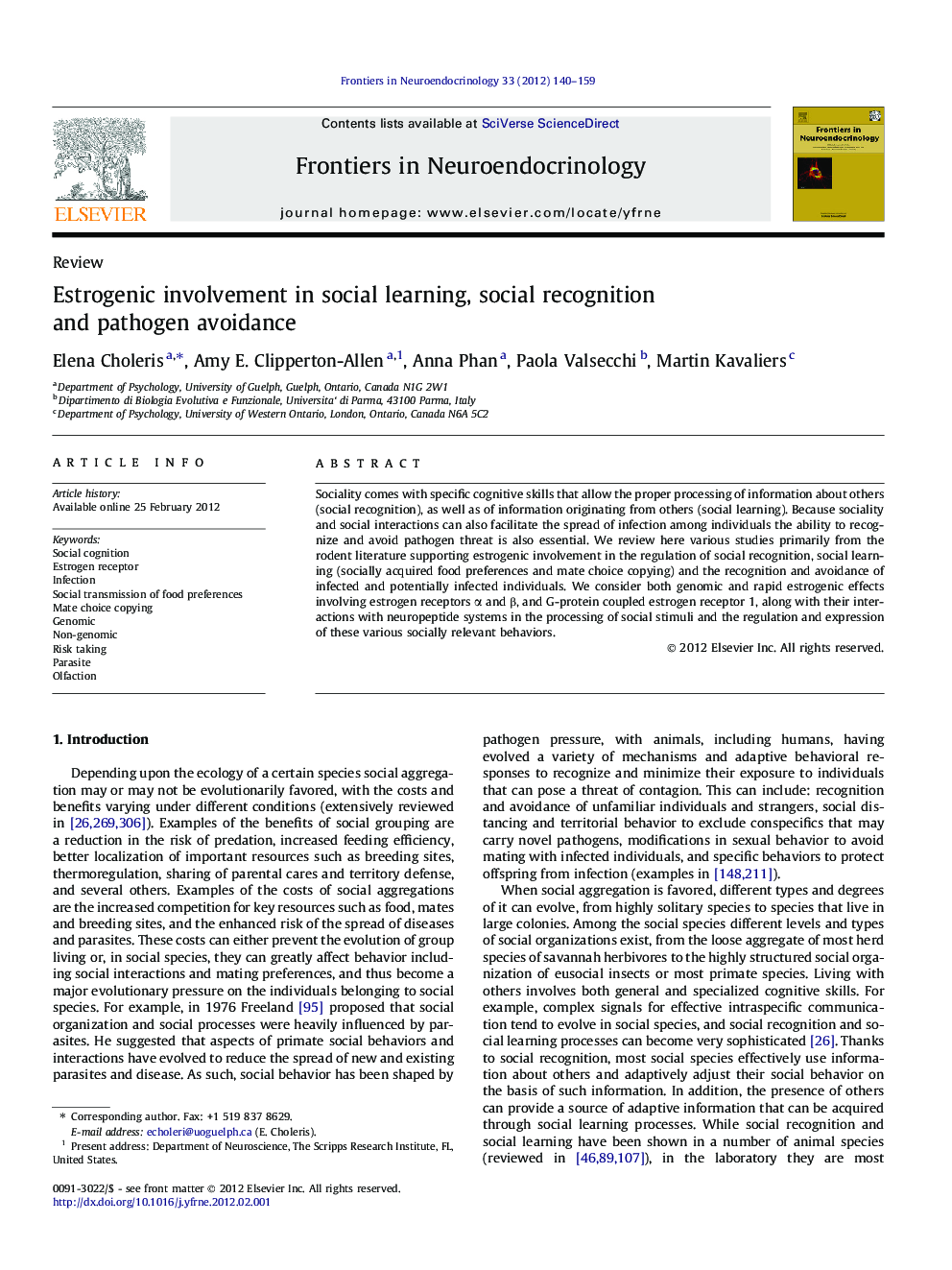| Article ID | Journal | Published Year | Pages | File Type |
|---|---|---|---|---|
| 2799324 | Frontiers in Neuroendocrinology | 2012 | 20 Pages |
Sociality comes with specific cognitive skills that allow the proper processing of information about others (social recognition), as well as of information originating from others (social learning). Because sociality and social interactions can also facilitate the spread of infection among individuals the ability to recognize and avoid pathogen threat is also essential. We review here various studies primarily from the rodent literature supporting estrogenic involvement in the regulation of social recognition, social learning (socially acquired food preferences and mate choice copying) and the recognition and avoidance of infected and potentially infected individuals. We consider both genomic and rapid estrogenic effects involving estrogen receptors α and β, and G-protein coupled estrogen receptor 1, along with their interactions with neuropeptide systems in the processing of social stimuli and the regulation and expression of these various socially relevant behaviors.
► Social behavior involves different types of social cognitive processes. ► Social recognition, social learning and parasite recognition and avoidance. ► Estrogens regulate social cognition via genomic and non-genomic actions. ► Estrogen receptors (ERs) regulate different types of social cognition differently. ► The balance of ER action may adaptively promote reproduction-relevant cognition.
